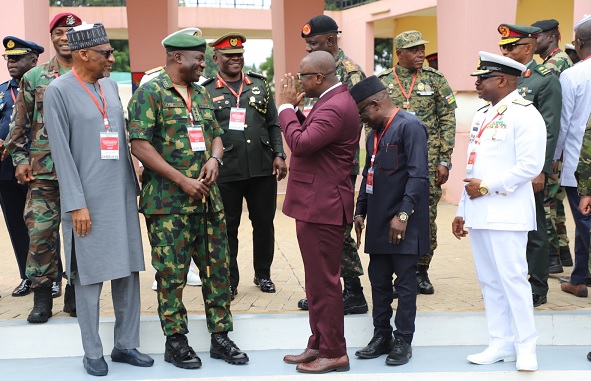In a significant development that could reshape the political landscape of West Africa, the Economic Community of West African States (ECOWAS) has established a decisive “D-day” for potential military intervention in Niger. This decision comes as a response to the recent coup in the country, where President Mohamed Bazoum was toppled and detained by the military. As diplomatic efforts continue, ECOWAS has agreed to activate a standby force as a final option to restore democracy in Niger.
Diplomatic Efforts Exhausted, ECOWAS Takes Action
Amidst mounting concerns over the political situation in Niger, the ECOWAS defense chiefs convened to address the crisis during a two-day meeting in Accra, Ghana’s capital. The bloc, representing the interests of West African nations, acknowledged that if all diplomatic avenues fail, the activation of a military intervention would become imperative.
ECOWAS’s Dual Approach: Mediation and Military Preparedness
While ECOWAS remains committed to pursuing peaceful negotiations with the military leaders who orchestrated the coup, the organization is simultaneously fine-tuning the details of a potential military operation. ECOWAS Commissioner for Political Affairs, Peace, and Security, Abdel-Fatau Musah, emphasized the readiness of the West African forces to uphold their duty, indicating that the “D-day” for intervention has already been decided.
Complexities and Concerns Surrounding Military Action
The path to military intervention is not without obstacles. The approval of parliaments and legislative bodies of participating West African states is crucial before any action can be taken. Countries like Nigeria have already expressed reservations about military involvement. Moreover, analysts raise concerns about the potential consequences of force, including destabilization of the Sahel region and the risk of exacerbating existing conflicts.
In the local context, there is a mixed perception of ECOWAS’s intentions. While the organization claims to prioritize dialogue and negotiation, its focus on military intervention raises doubts among local communities. The potential for war or military action remains unpopular among the people, creating a delicate balance for ECOWAS to navigate.
The coup in Niger has put ECOWAS in a precarious position, forcing it to consider military intervention as a last resort. While the bloc has a history of struggling to curb coups in the region, the situation in Niger has compelled ECOWAS to take a more assertive stance. The imposition of economic and travel sanctions, alongside the threat of military intervention, underscores the urgency of the matter.
However, time is of the essence, and the delay in taking concrete action has allowed the military leaders to solidify their grip on power. The implications extend beyond Niger’s borders, affecting the wider West African region. The Sahel, already grappling with armed groups, faces further instability if military intervention leads to violence.
Niger’s strategic importance on the global stage cannot be overlooked. Its uranium and oil reserves, along with its role in the fight against groups linked to al-Qaeda and ISIS, make it a focal point for international interests.
In conclusion, ECOWAS’s decision to set a “D-day” for potential military intervention reflects the organization’s determination to restore democracy in Niger. However, the path ahead is riddled with challenges, including diplomatic complexities and concerns about the repercussions of force. As the region watches closely, the fate of Niger hangs in the balance, with ECOWAS facing a critical juncture in its pursuit of stability and democracy.















